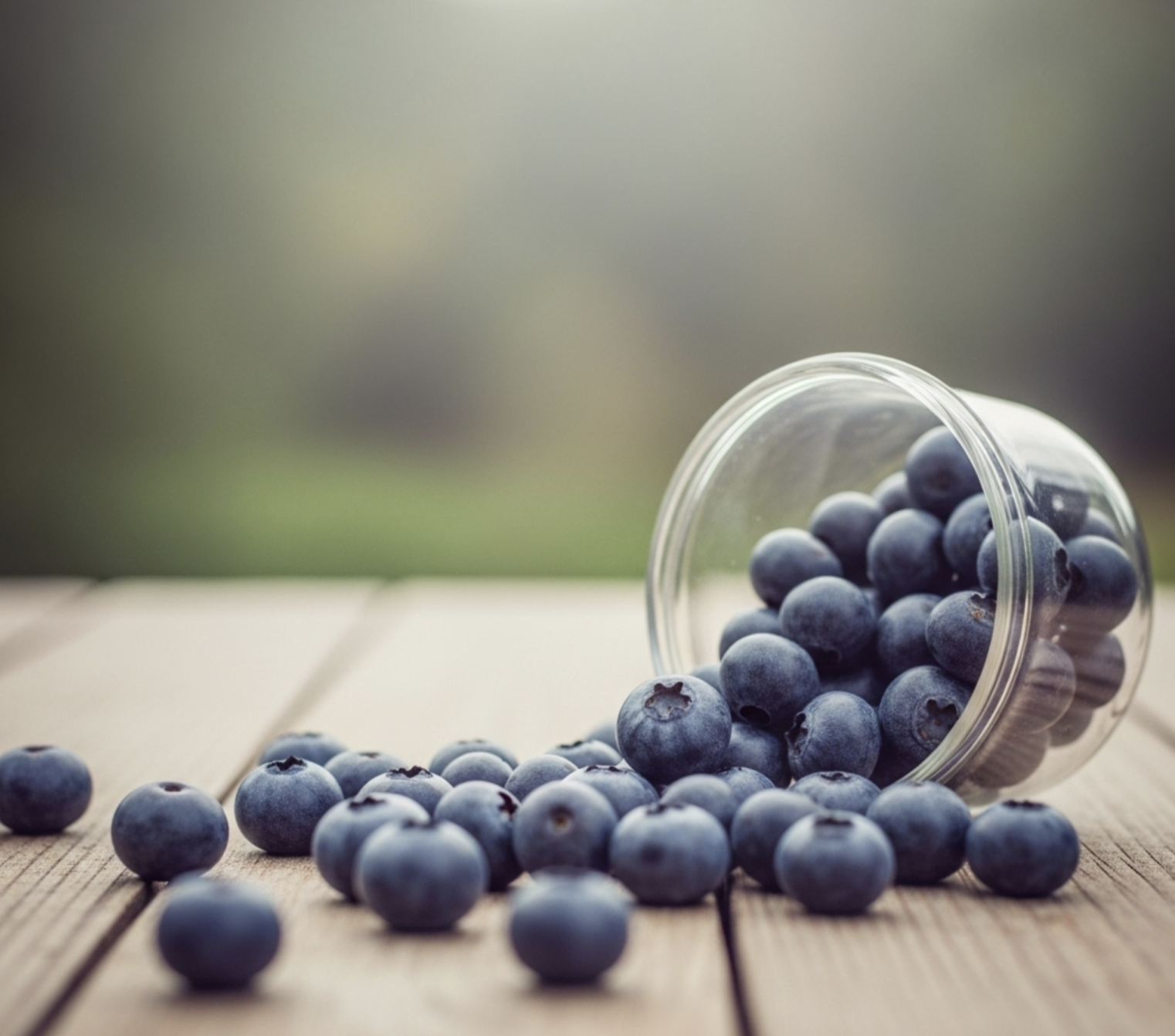 |
Blueberries are packed with potent antioxidants that combat free radicals, which can damage skin due to sun exposure and stress. They also provide vitamin C, which reduces wrinkle formation after sun exposure. |
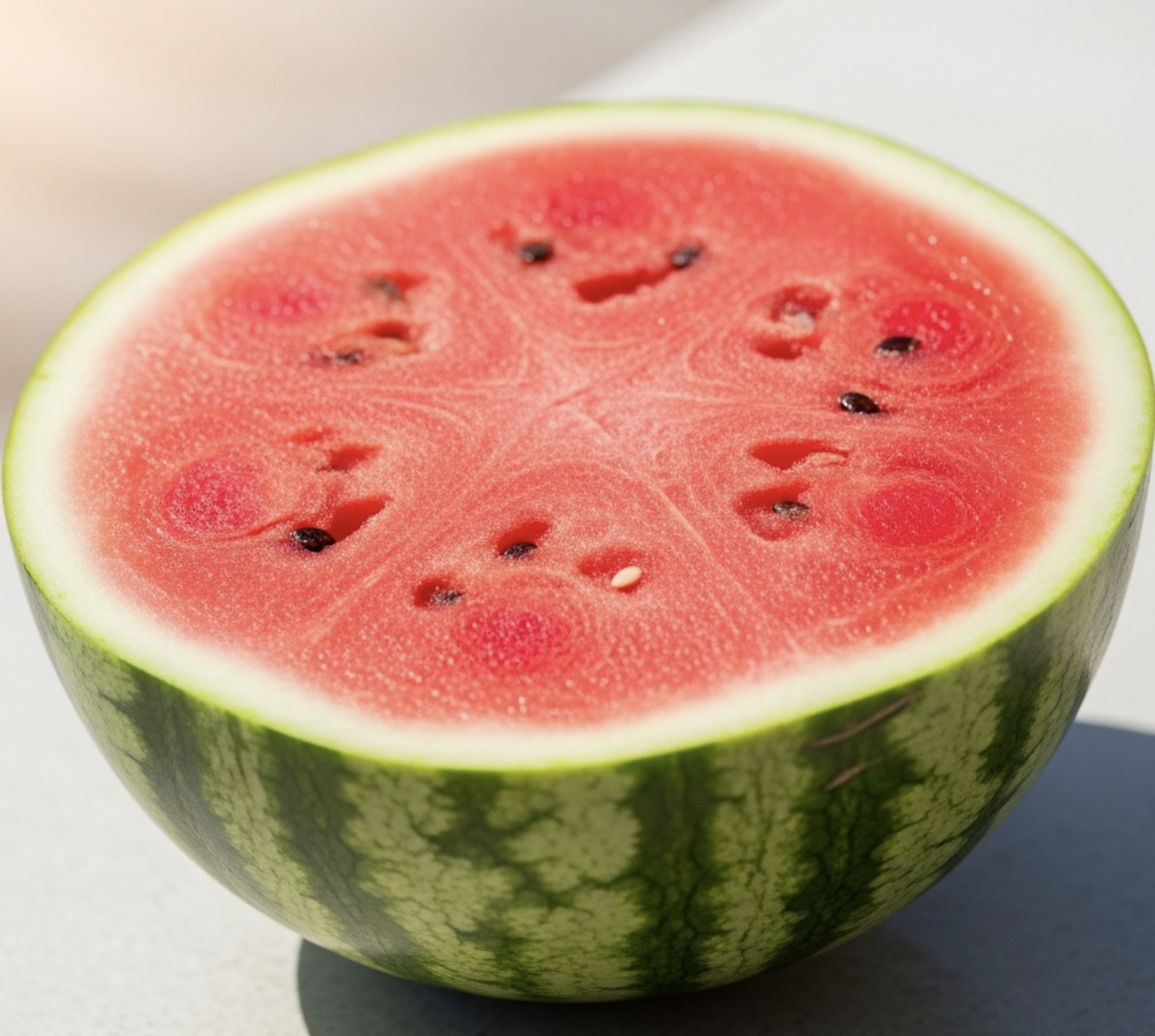 |
Watermelon contains even more lycopene than tomatoes. Lycopene, the antioxidant that gives watermelon its red color, can protect skin from sunburn by absorbing ultraviolet B (UVB) radiation, a leading cause of sunspots, darkening, and skin aging. |
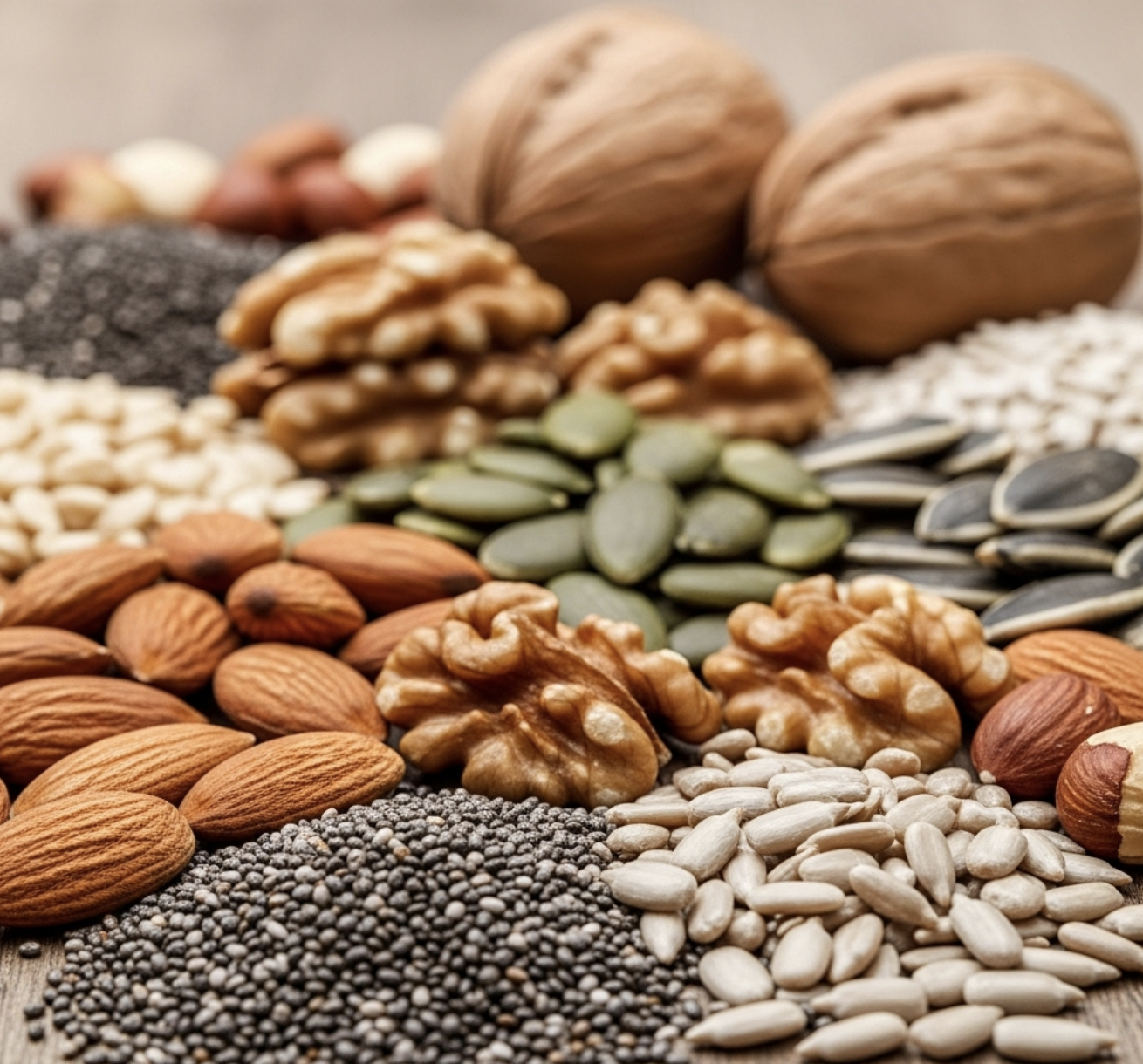 |
Our bodies cannot produce essential omega-3 fatty acids, so we must obtain them through our diet. Nuts like walnuts, hemp seeds, chia seeds, and flax seeds all contain omega-3s. Fish and eggs are also rich in these healthy fats. A diet rich in omega-3s has anti-inflammatory properties, reduces sunburn, and may help prevent skin cancer. |
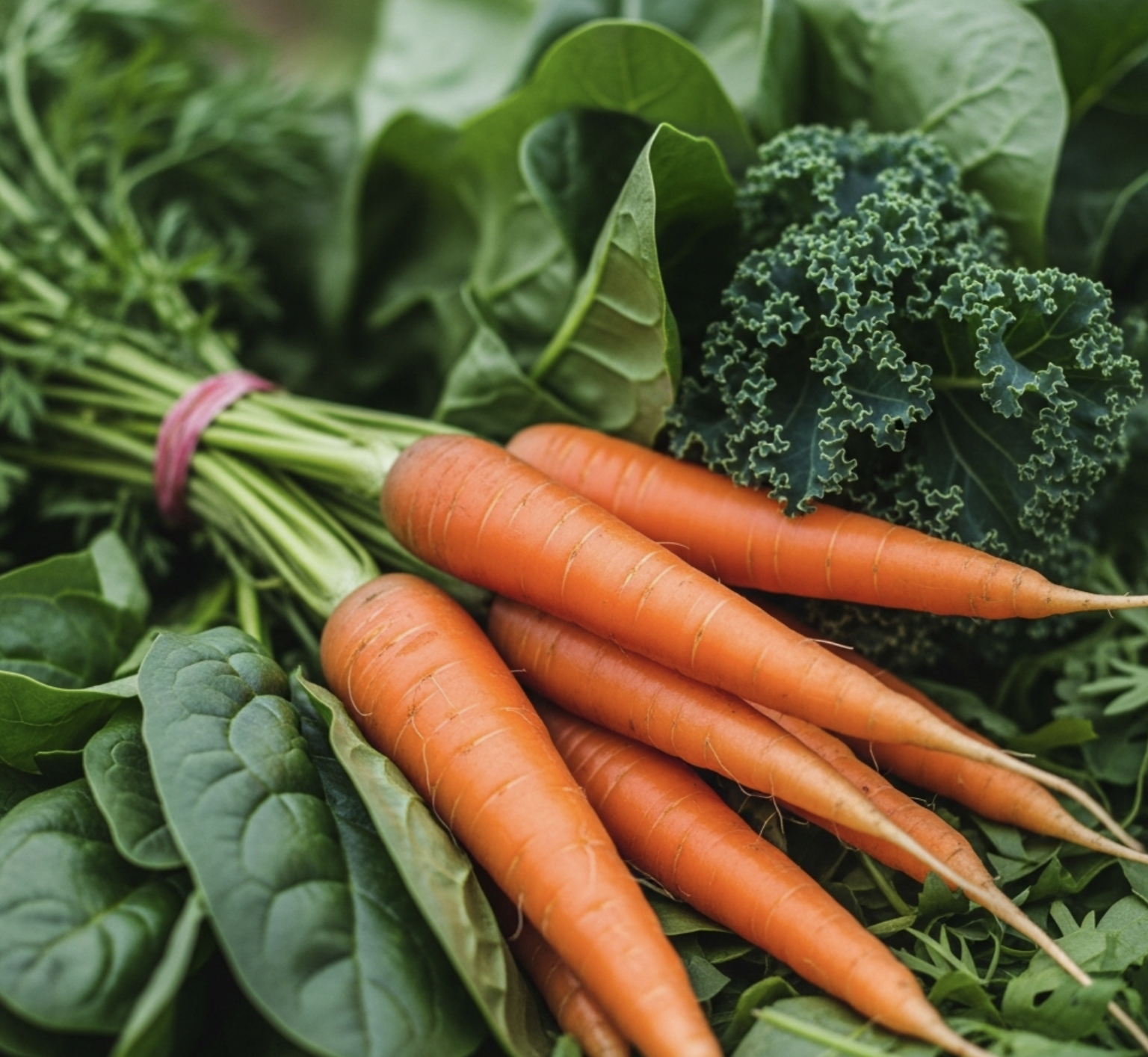 |
Carrots and leafy greens like kale and spinach are excellent sources of beta carotene. The body converts beta carotene into vitamin A, which is essential for skin health. Leafy greens also contain the antioxidants lutein and zeaxanthin, which help protect the skin from sun damage. |
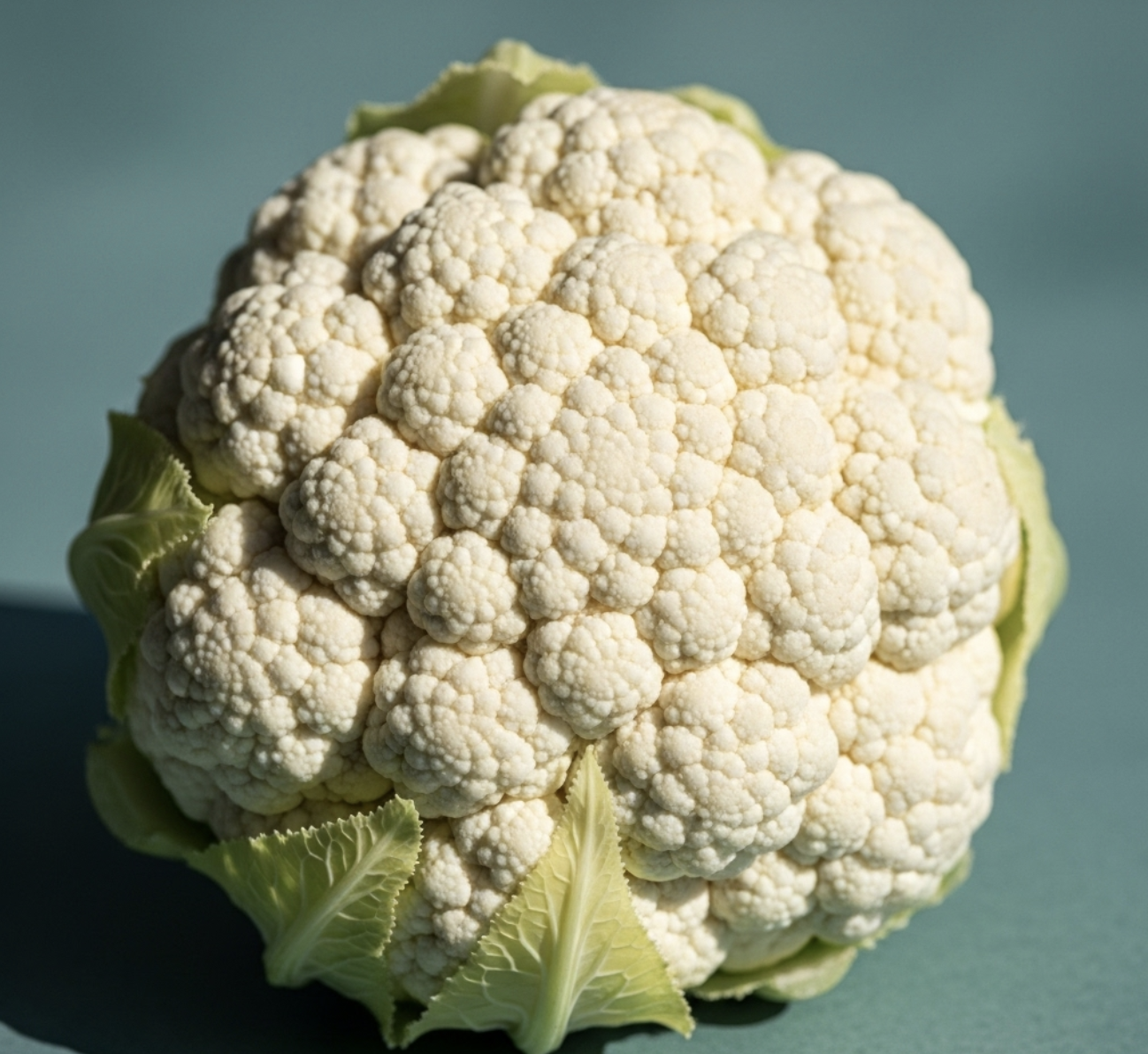 |
Like other cruciferous vegetables, cauliflower is rich in glucosinolates and isothiocyanates. These antioxidants protect cells from damaging free radicals and inflammation, potentially slowing the growth of cancer cells. Cauliflower also contains carotenoid and flavonoid antioxidants, along with high levels of vitamin C, which further supports immune health with its anti-inflammatory properties. |
 |
Green tea offers numerous health benefits thanks to its potent antioxidants. Carotenoids and polyphenols, such as EGCG, found in green tea provide natural sun protection.
Carotenoids and polyphenols accumulate in the skin and absorb sunlight at different wavelengths. Along with other antioxidants like vitamins C and E, they protect the skin from the damaging effects of UV-induced free radicals that can cause skin aging.
Anh Ngoc (Healthline)
Image generated by AI












